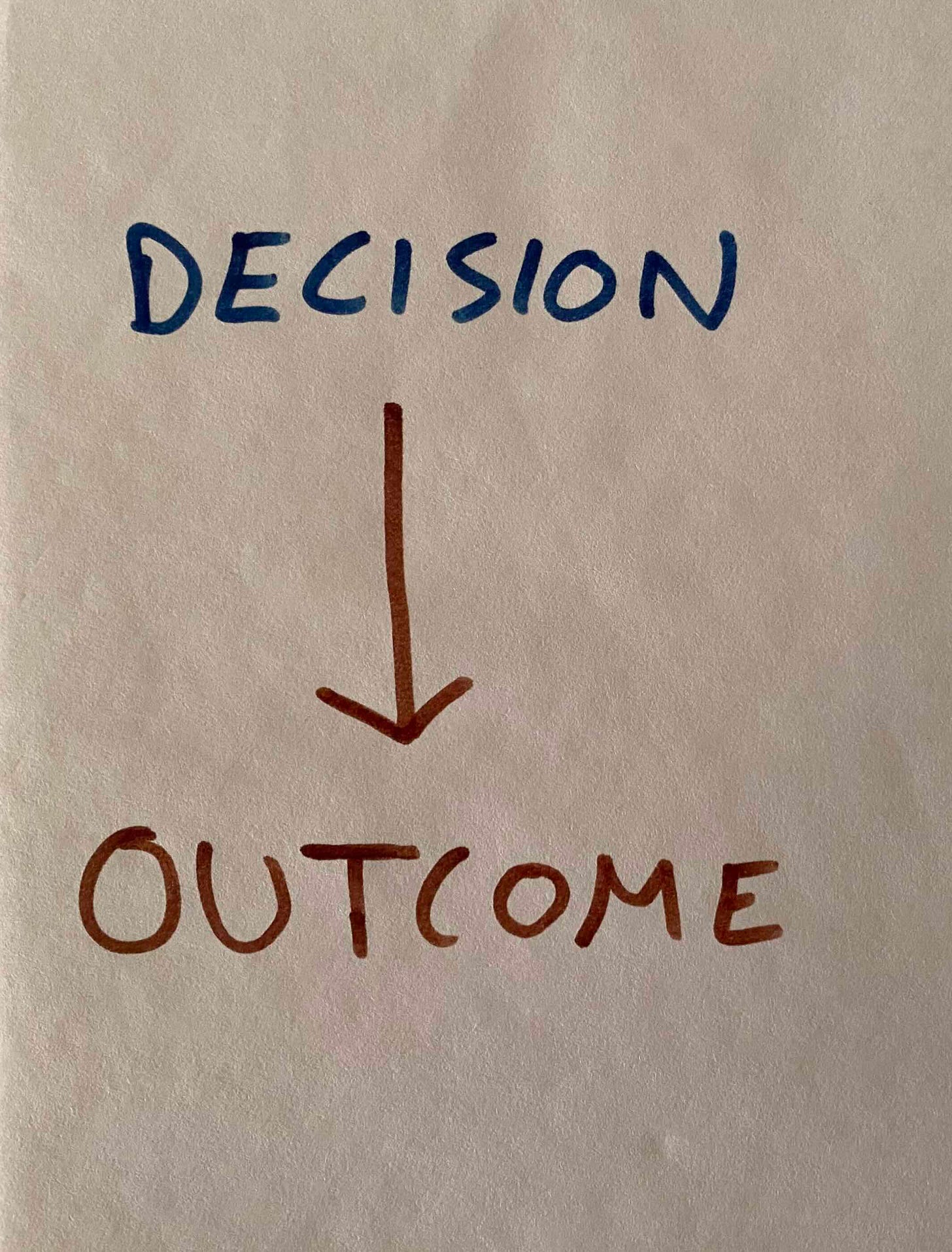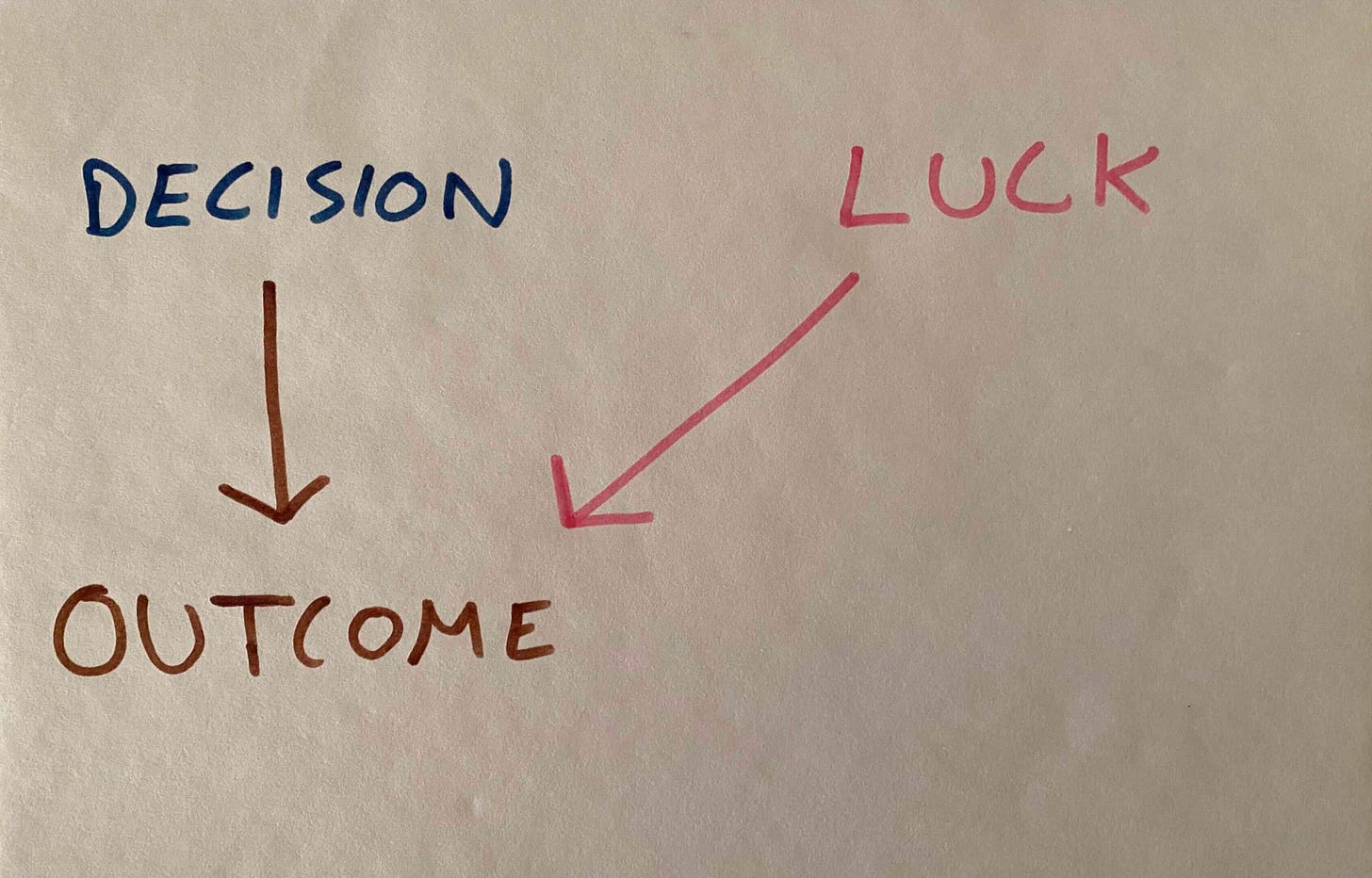Responsibility vs Accountability vs Blame
A few words in the corporate world are often misused or used interchangeably when they mean different things. Let’s look at them one by one.
Responsible
… means response-able — you have the ability to respond. For example, if an app is confusing to use, the designer is responsible1. If a customer has filed a ticket, the customer support team is responsible. If the servers have crashed, the DevOps team is responsible. That doesn’t mean they’re at fault. It just means that they are the ones with the technical skills to handle the situation. Responsibility is all about the future: who’s going to get us out of this situation? It’s about the solution, not the problem.
A tip to use this word correctly:
Instead of telling someone “I’m holding you responsible for this!” which can be misunderstood as blame, say, “I want you to take responsibility for fixing this”. “Responsible” should always be followed by “for fixing”. Or say, “Take charge of solving this problem.”
If you’re told, “You need to take responsibility for this!” Respond with, “I’ll take responsibility for fixing this problem.” Highlight fixing as you speak or type it in upper case in Slack. Never say, “I’ll take responsibility for this” because it can be misinterpreted to mean “It’s my fault.” If you suspect you’re being blamed (maybe the tone was angry), it’s better to append, “I’m just trying to clarify: You’re not saying this is my fault, are you?” than to feel insulted or resentful about something the other person may never have intended in the first place.
Accountable
The root of this word is “account” — you have to give an account of what happened. Stakeholders have a right to know. For example, if the servers went down on a peak day, the engineering team is accountable. Again, this doesn’t mean that the engineering team is at fault. That will be determined based on the account.
A tip to use this word correctly:
Instead of saying, “I’m holding you accountable!” which can be misunderstood as blame, say “We need to understand what went wrong and what we can do better next time. Can you write a retrospective?” which is action-oriented.
If you’re told, “I’m holding you accountable for this” say, “I’ll write a postmortem, and we can all get together as a team to understand what happened and what we can do better.” Again, if you suspect blame, it’s better to append, “I’m just trying to clarify: You’re not saying this is my fault, are you?”
Fault / Blame / Mistake / Poor Judgment
These words mean that your decision was not justifiable even with the information known at the time of making it.
Say you made a decision that backfired. Does it mean you need to take this as feedback and change your decision-making process?
We think a decision leads to an outcome:
So if you get a bad result, you should improve your decision, right?
No. Say you make a decision considering all available information. But the day after, things keep happening which affect the outcome, but which you can’t foresee, let alone control:
So, if the outcome was bad, you can’t conclude that the decision needs to be improved. If two factors determine the results, you can’t conclude that the first factor needs to change. That’s a fallacy called resulting.
Imagine I roll a die, and you can bet whether it shows a number > 2 or <= 2. If you bet right, you get ₹100. Say you bet the former. The die shows 1. You lost. Does that mean you should bet the other way around in the future? No, it was a good decision because it gives you a ⅔ probability of winning. Your loss was only a fluke, and if you stick with your strategy, you’ll win more often than lose. This is why an individual decision can’t be evaluated based on its results. Only when you aggregate a bunch of decisions, like rolling the die 20 times, can you evaluate decisions based on results. Avoid over-learning. Every incident doesn’t have a learning. Sometimes things just happen for random reasons.
A friend of mine, a founder that has reached a higher level of success than many, tells me that decisions have to be evaluated based on the information available at the time of the decision, not the results. If I told you, “Yesterday, I was carrying my laptop with oily hands and —” and interrupt the story there, without telling you what happened next, you’d say, “That was dumb.” The decision is not justifiable with the information known at that time. You don’t need to hear the story play out to its conclusion. If the laptop didn’t fall, it doesn’t mean carrying a laptop with oily hands is a sensible thing to do. In fact, Google X had an idea contest, and the person with the best idea received a prize — before the idea was implemented. The idea has to be evaluated based on the information available at the time it was generated.
To give you a work-related example, I hired Binod, who after a few months resigned because he fell severely ill. This was a loss because he was ramped up at great expense to the startup. Does that mean hiring Binod was a mistake, and I should therefore change my hiring criteria? No, because there was no way I could foresee he was going to have severe ill health.
Some people think that blame is bad. Unjustified blame is bad, but justified blame is completely appropriate and contributes to a just culture.
A tip to use this word correctly:
Before you say “This is a mistake on your side”, go through a blameless postmortem focused on fact-finding, not finding whom to blame. Nobody may be blameworthy. Sit down with the person you intend to blame and get their side of the story. Then, if appropriate, blame. Don’t shoot first and ask questions later.
If you’re told, “This is a mistake on your side” and the above process hasn’t happened, educate them on it. If they don’t listen, reject the blame outright.
Summary
Don’t confuse the three different concepts:
Accountability = what happened?
Responsibility = fixing it
Blame = who (if any) needs to do better?
Don’t confuse this blog post with the Responsibility assignment matrix. The matrix is about assigning roles to people at the start of a project, while this post is about the three kinds of conversations we could have when things go south.





